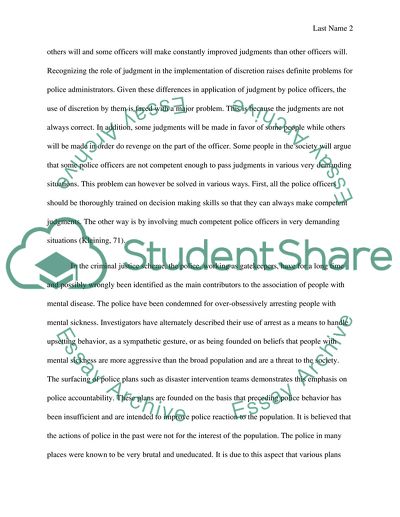Cite this document
(Police Discretion: Issues of Decision Making Term Paper, n.d.)
Police Discretion: Issues of Decision Making Term Paper. Retrieved from https://studentshare.org/social-science/1744228-police-discretion
Police Discretion: Issues of Decision Making Term Paper. Retrieved from https://studentshare.org/social-science/1744228-police-discretion
(Police Discretion: Issues of Decision Making Term Paper)
Police Discretion: Issues of Decision Making Term Paper. https://studentshare.org/social-science/1744228-police-discretion.
Police Discretion: Issues of Decision Making Term Paper. https://studentshare.org/social-science/1744228-police-discretion.
“Police Discretion: Issues of Decision Making Term Paper”, n.d. https://studentshare.org/social-science/1744228-police-discretion.


